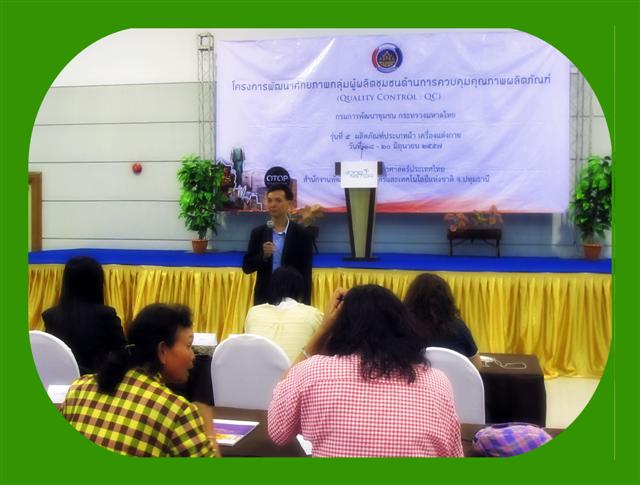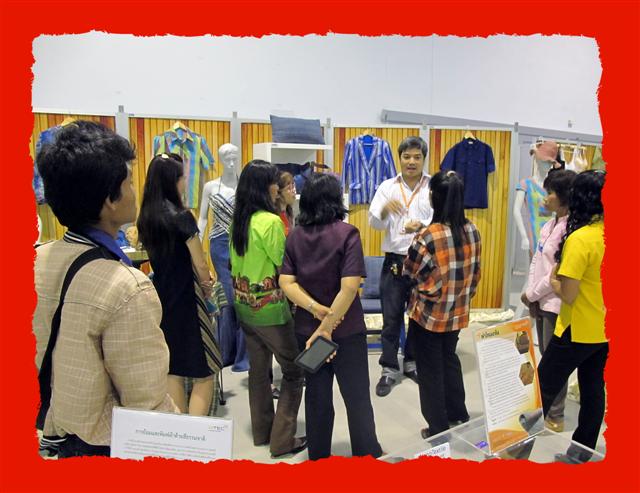NSTDA and Interior Ministry’s Department of Community Development organized the 5th OTOP Workshop on Quality Control for the textile sector which opened this morning at Thailand Science Park Convention Center. Over 160 OTOP members registered for the course. The 3 days workshop consists of lectures, hands-on activities, and visit to NSTDA research units. The Nano Textile Flagship Program at NANOTEC was invited to participate. Dr. Varol Intasanta, Head of Nano Textile Flagship Program will give a lecture on “Nanotechnology to upgrade local textile industry”. He will also conduct a demonstration class to show the various properties of nano textile such as anti-UV, water repellent, anti0bacteria, and aromatic. The 5th workshop is the final workshop for 2014. NSTDA is already planning for the 2015 workshop program.
The One Tambon One Product (OTOP) is a government initiated stimulus program designed to support the unique locally made and marketed products of each Thai tambon (subdistrict) all over Thailand. By its very nature, the OTOP project comes with its own set of complex challenges pertaining to realities of trading beyond borders — the issues of meeting deadlines, quality control, production capacity, design preferences and marketing challenges. Not all OTOP products in the past were of export quality.
Many government agencies have been providing these village communities the necessary support. For instance, the OTOP Task Force of the Department of Export Promotion (DEP), Ministry of Commerce, develops activities that will assist in exporting OTOP products, such as the display of selected products at trade fairs in Thailand and overseas, as well as participating in in-store promotions and Thailand Exhibitions in other countries.
While the OTOP project aims to increase village incomes, the government is also offering a choice — to go into OTOP production full time with plenty of government assistance. Major government agencies provide support: the Interior Ministry’s Department of Community Development works directly with the villages to fine tune their products; the Industry’s Ministry’s Department of Industrial Promotion plays a key role in product development, skills training and quality control; the DEP’s Product Development Centre employs teams of designers to work with villagers to create marketable designs and packages for their products.


